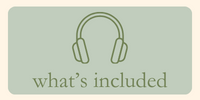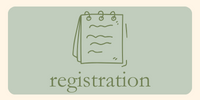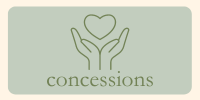The Risk of Living Together
- 11 February - 11 November, 2025
- 19:00 - 21:30 French Time
- 8 Sessions Online
- £140 for all sessions (Get 1 free)
- £20 for single session
Increasingly, people in affluent societies are choosing to live alone. Traditional ways of forming relationships especially those demanding personal commitment have been damaged by ‘progress’. Technically we may advance but are we humanly regressing?
Our societies are increasingly plutocratic – that is, they run on celebrity and worship of money and media. Democracy has an uncertain future. Is this connected to the weakening of our faith in society as a fellowship, mutual support, caring for the poor and marginalised. What has happened to the ideal of the Good Samaritan
Widespread ideas about why we are failing to live together – intimately or socially –tell us more than statistics. Are we scared of the risk of living with others? Isolation and loneliness can be acute among old people and young people often suffer the depressing sense that they have lost the way into loving and stable relationships. How can we recover the basic sense of connection to each other that makes us human? ‘Who is my neighbour?’
Our WCCM theme this year examines these powerful feelings and forces. It asks ‘what or who do we need to re-connect with to help us take the risk of living together?’ How, as John Main said, can we learn to take the ‘risk of all loving’ which is to give ourselves before we have the guarantee of success? Is there a new way? Can perennial sources of wisdom reveal it? Maybe it is spiritual, not political or economic, insights that will re-prioritise human relationships over the values of success, wealth and dehumanising systems. We might then just wake up, accept the obvious and build lasting relationships and diverse societies which know how to cure the virus of polarisation.
In 2025 a special series will introduce us to possible answers. Each session will look at the problem from different perspectives with gifted teachers and thinkers. How to recover a humane world that actively cares for the poor and the stranger, public kindness and protects the innocent from war and abuse
Economics and politics are not the only laws: there are sources of wisdom moral, religious and psychological. The Book of Leviticus stated, ‘you shall love your neighbour and the stranger among you as yourself.’ Islam makes the support of the poor a personal obligation. In America where ‘liberal’ has become for many a term of contempt, the Christian foundations of American values lie in the liberality of compassion and care for others.
Is it contemplative consciousness and contemplative wisdom that will open our eyes to what being human really means and so help us to care for ourselves by caring for others?
I invite you to join me and our gifted presenters on this quest during the coming year and be empowered for a new way of being human.
Laurence Freeman
Register for the Full Series
-
Register for full series (get 8 talks for the price of 7)
-
Opportunity to meditate at the start of each session
-
Time to interact with the speakers
-
Unlimited access to recordings (single sessions registrations give 1 year access)
-
Registration form at bottom of page
-
Schedule of Dates & Speakers
11 February 2025
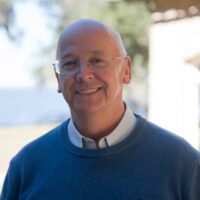
Conviviality
Being convivial means friendliness, liveliness, hospitableness which are basic elements of happiness. We assume conviviality is intrinsic to human nature and interactions with others and if it breaks down it feels that something has gone wrong. Many people today feel that their life with others is becoming less convivial because of the suspicions, fear, prejudice, competitiveness which characterise a techno-scientific world where traditional ways of meeting have broken down. In this first talk in the series of The Risk of Living Together, I will recall how important it is to feel we have been met. Then we can authentically meet others and I will remember phases of my own life which have taught me this. In contemplative practice too we feel met: we let go of separation, tribalism and loneliness and enter solitude wherewe feel a mysterious convivial presence. Take the risk of living with ourselves and the risk of living with others becomes far less daunting.
25 March 2025

My life and death is with my neighbour
This reflection and meditation will draw on the encounters of a week in the centre of a city. It will explore how contemplation makes us more attentive to all that is around us and opens up our hearts to the lives of others. Drawing on 18 years of ministry in a church with an open door on the edge of Trafalgar Square with people from all walks of life, Richard will tell the story of some of the people he has encountered. He will explore the meaning of what it means to be present to one’s neighbour and alongside them and Christ even in situations of struggle where there are no easy answers. He reflects on what it means to make a place and a space for God and for our neighbour and within ourselves for the encounters which form us and change us.
20 May 2025

A Contemplative Mind: The Antidote to Reciprocal Demonization?
Tim will explore dimensions of contemplative practice that reveal the experience of what unconditional dignity means for transforming injustice and pain.
17 June 2025
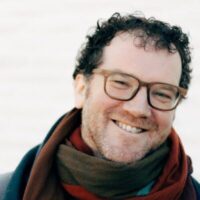
Hell is other people and other stories
The often misunderstood quote from Sartre proposes that for those who insist on isolation, the company of other people indeed, can feel hellish. This talk by Pádraig Ó Tuama will incorporate poetry and narrative about human interconnectivity, tension, electricity, drama and enlivenment.
22 July 2025
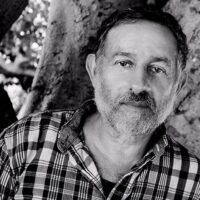
Love Your Neighbor as Yourself: The Teaching at the Heart of Judaism
The commandment to “love your neighbor as yourself” lies at the heart of Judaism. Yet it often seems difficult to apply this beautiful and essential teaching in today’s fractured and divisive world. In this talk, we will glean inspiration from the Biblical, Rabbinic, Hasidic, and Kabbalistic sources to guide and empower us in this vital spiritual work.
2 September 2025

The Wisdom of Compassion in Islam
In this talk I hope to demonstrate that, just as the principle of divine unity illuminates the mind of the Muslim, the principle of loving, merciful compassion (rahma) inspires the heart of the Muslim who is faithful to the Koranic message. One of the ways in which these two principles come together in the Koran concerns the all-embracing unity of divine Revelation: God’s mercy is said to ‘encompass all things’ (7: 156) on the one hand; and, on the other, this mercy is manifested in the magnificent kaleidoscopic phenomenon of universal Revelation, as the truth of God’s reality is disclosed to all human communities, without exception: ‘For every community there is a Messenger’ (10:47). In this talk, this merciful message of the Koran will be explored through the posing of eight questions, and their answer by means of one or two verses of the Koran, answers which allow the Koran to ‘speak for itself’ as regards the universality of its conception of the religious phenomenon.
14 October 2025
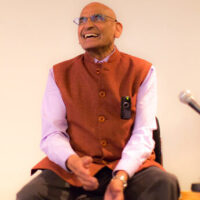
A Hindu Meeting a Christian Neighbour on a Spiritual Journey.
A searcher on a spiritual journey inevitably becomes aware of the Divine Presence all around him and begins to understand that his closest neighbour is God, and that Divine Neighbour is attracting seekers from many different cultural and religious backgrounds wishing to come closer and closer to Him and become one with Him. A seeker coming from the Hindu background is especially delighted to meet a Christian seeker who is truly trying to correspond to the call of the Christ to all serious searchers to become his own brothers and sisters and to come closer and closer to his own being in order for them also to be able to say, ‘The Father and I are one.’ Then the two searchers will happily exchange the ups and downs on their journey, including the obstacles created by their organized religions and the encouragements brought by the blessed sages in their traditions.
11 November 2025
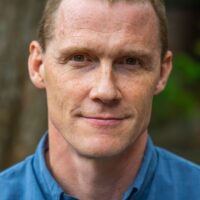
Joyful Rebellion – when people with learning disabilities lead
L’Arche Communities are places where people with and without learning disabilities share their lives, homes and spiritual journeys. When John Casson joined L’Arche as National Leader in 2021, after a career in diplomacy, it over-turned his assumptions about leadership, power, and spiritual practice. John and a group of L’Arche members will share some of the joyful rebellion that people with learning disabilities make possible – in how we live, how we see, and how we approach God.
-
What's Included

Q&A with the Speakers
In each talk, you will have the opportunity to ask questions to the speaker

Access to Recordings
By registering, you'll be given access to the talks' recordings

Meet Fellow Meditators
Whatever the stage of your journey meet fellow meditators with whom to reflect and share your thoughts about this series in a safe environment

Meditate Together
We offer the opportunity to meditate together at the start of each session
Full Series Registration
- Unlimited access to recordings
- Get 8 Talks for the price of 7
- Get access to the series private page with extra resources by the speakers
- Opportunity to share your reflections with other participants
Single Session Registration
- Unlimited access to recordings
-
Concessions
The prices reflect the need to achieve self sufficiency. Therefore if you’re able to give a little more we would be very grateful. Please, click here to donate.
Image by Brian Merrill from Pixabay



